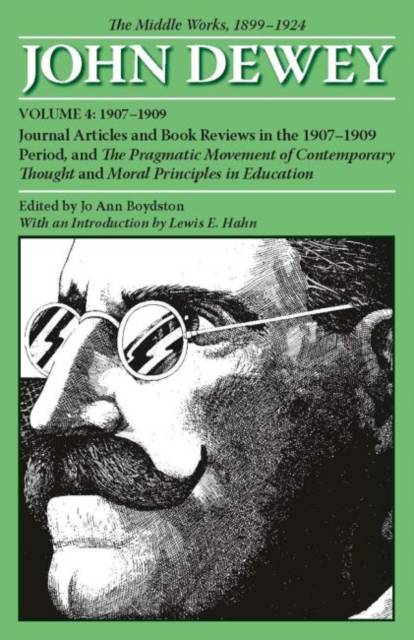
- Afhalen na 1 uur in een winkel met voorraad
- Gratis thuislevering in België vanaf € 30
- Ruim aanbod met 7 miljoen producten
- Afhalen na 1 uur in een winkel met voorraad
- Gratis thuislevering in België vanaf € 30
- Ruim aanbod met 7 miljoen producten
Zoeken
The Middle Works of John Dewey, Volume 4, 1899 - 1924
Journal Articles and Book Reviews in the 1907-1909 Period, and the Pragmatic Movement of Contemporary Thought and Moral Principles in Education Volume 4
John Dewey
€ 57,45
+ 114 punten
Omschrijving
By 1907, the first of the three years embraced by Volume 4, Dewey had abandoned thoughts of a possible career in the administration of higher education and was firmly established as a leading member of the Department of Philosophy at Columbia. As Lewis Hahn points out in his Introduction, these were "very productive years for Dewey. In addition to numerous lectures and speaking engagements and participation in professional meetings, he published fifteen or so substantial articles, almost as many shorter things, a syllabus on The Pragmatic Movement of Contemporary Thought, a monograph on Moral Principles in Education, and, with J. H. Tufts, the first edition of a very popular textbook, Ethics."
Specificaties
Betrokkenen
- Auteur(s):
- Uitgeverij:
Inhoud
- Aantal bladzijden:
- 414
- Taal:
- Engels
- Reeks:
- Reeksnummer:
- nr. 4
Eigenschappen
- Productcode (EAN):
- 9780809327997
- Verschijningsdatum:
- 1/04/2008
- Uitvoering:
- Paperback
- Formaat:
- Trade paperback (VS)
- Afmetingen:
- 144 mm x 216 mm
- Gewicht:
- 553 g

Alleen bij Standaard Boekhandel
+ 114 punten op je klantenkaart van Standaard Boekhandel
Beoordelingen
We publiceren alleen reviews die voldoen aan de voorwaarden voor reviews. Bekijk onze voorwaarden voor reviews.











